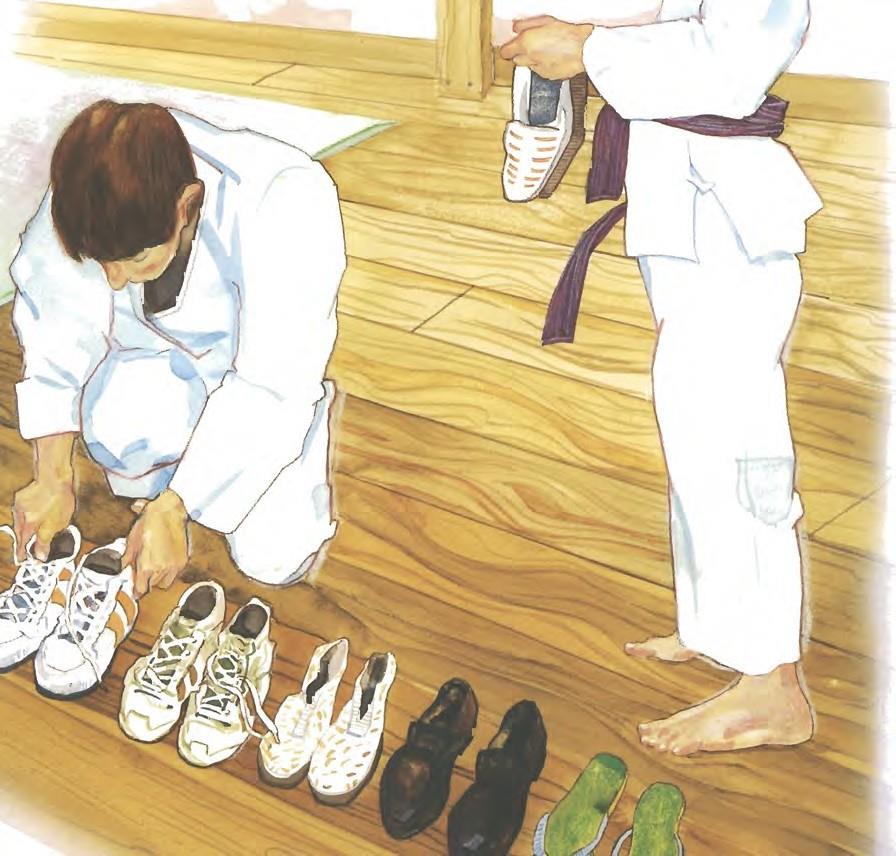Chapter 10
KARATE MANNERS
"Do for others as you would like them to do for you."
I know that your family and your teachers have probably talked to you a great deal about the importance of good manners. You have perhaps come to believe that practicing good manners is something you should do. I would prefer that you think of them as something you want to do. After all, having good manners is being kind and caring for others, and we all want to be treated kindly and in a caring way.
In the Art of Karate, it is important to act as a "gentle-man" or "gentlewoman." This means you learn how to act politely not only at home and at school, but also in the Dojo (the Karate school).
1. You learn how and when to bow.
2. You learn to address your Instructor as Sensei (sen-say) - the Japanese word for "teacher."
3. You learn to be polite to your fellow students.
These rules and others make for a good relationship between students and teachers, and students and students.
67
Bad Manners
Some examples of bad manners are:
1. Rushing around and pushing or shoving to get in front of a line.
2. Interrupting someone while he or she is talking.
3. Dumping your shoes and clothes on the floor of the Dojo changing room.
4. Calling someone a name because he or she wears glasses or is tall, or short, or from a foreign country, or a different color.
Ask yourself how you feel when others are being bad mannered. How do you feel when you are using bad manners?
Good Manners
1. Letting someone in line without pushing or shoving.
2. Greeting your teacher and fellow students with respect.
3. Holding a door open for someone.
4. Saying "thank you" when someone holds a door open for you.
5. Waiting until someone is finished talking before speaking.
Good manners are the foundation of the practice of the Art of Karate, just as a good foundation is essential for the building of a strong house. Manners make it possible for people to have intelligent and happy relationships. But, just like self-defense techniques and alternatives to fighting, manners must be practiced. As you practice them, ask yourself from time to time why 68

they are important. W hen you truly see the need for them, good manners will come naturally, from the heart.
In Take Nami Do Karate, we have a saying. It goes like this:
"We ask our young students to put their shoes by the entrance of our place of practice.
They line them upjust so, taking care to observe the order in this simple gesture. They think that Karate is punching and kicking. We know that the Art of Karate is lining up their shoes-just so."
- Terrence Webster-Doyle
from Karate -The Art of Empty Self
























